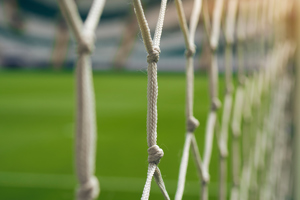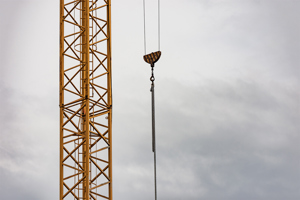Update on FIFA related proceedings in Switzerland
This update is a follow-up to our previous article of July 2019, which announced the recusal of the Attorney General of Switzerland (OAG) and of two other federal prosecutors following informal meetings conducted by the OAG with representatives of the Fédération Internationale de Football Association (FIFA).
Various aspects of the Swiss FIFA-related proceedings have progressed with diverse outcomes. This article provides an update on these proceedings, the first to intervene in the conduct of business of a major international sports body in Switzerland.
Since 2015, the OAG opened twenty-five investigations, twenty of which are still pending. These proceedings relate to suspicion of corruption and money laundering within FIFA.
At the same time, the US Department of Justice has conducted criminal investigations led by the Federal Prosecutor of Eastern District of New York in relation to the granting of media, marketing and sponsorship rights for the broadcast of football tournaments in the United States and Latin America. The Swiss Federal Office of Justice is supporting the US investigation through international judicial assistance, that led to the arrest, at dawn on 27 May 2015 at the Baur Au Lac Hotel in Zurich, of, among others, high-ranking officials of FIFA and of other football governing bodies. In May 2021, a Swiss bank pleaded guilty to conspiracy to launder over USD 36 million in bribes to football officials at FIFA and other football federations.
2006 FIFA World Cup
On 6 November 2015, six months after the Zurich police raid, the OAG opened a criminal investigation against unknown persons on suspicion of mismanagement and money laundering in connection with payments made in the run-up to the 2006 Football World Cup in Germany. The OAG of Switzerland extended the criminal prosecution in July 2016 to three former officials of the German Football Association (DFB) and a former FIFA General Secretary who were suspected of fraud (Art. 146 of the Swiss Criminal Code; SCC) for having concealed from the DFB the true destination of a 6.7 million euro transfer paid in 2005 by the World Cup organising committee. The DFB and FIFA constituted themselves as private claimants in the criminal proceedings.
Under Swiss law, the first instance judgment must be rendered before the expiry of the limitation period for criminal proceedings, which is 15 years from the commission of the offence in the case of fraud (Article 97(1)(b) SCC).
The investigation lasted five years. On 5 August 2019, the OAG filed an indictment with the Federal Criminal Court against the accuseds for fraud.
The trial opened on 9 March 2020 (SK.2019.45) and, due to the absence of three of the defendants, closed on the same day. On 11 March 2020, the main proceedings were re-opened in absentia. On 17 March 2020, the proceedings had to be interrupted because of the Covid-19 pandemic and the proceedings had to be suspended, first until 20 April 2020 and then until 27 April 2020. By this date, the statute of limitations for the offences in question had expired. The Federal Criminal Court had to close the proceedings and award a compensation payment to the defendants for around CHF 650,000 for defence costs and moral damage.
The first FIFA-related trial was dead in the water.
2018, 2022, 2026 and 2030 World Cups – First judgement rendered by the Federal Criminal Court (SK.2020.4)
The OAG opened another, separate criminal proceeding (SV.15.1443) against FIFA’s ex-no 2 for mismanagement, alternatively embezzlement, contrary to FIFA’s interests.
It emerged during the investigation that the defendant had received monetary benefits from a Qatari politician and sports leader and from a Greek individual in return for the awarding of media rights of around USD 480 million for the 2018, 2022, 2026 and 2030 World Cups by FIFA. The defendant allegedly received from the Greek individual a payment of EUR 500,000 made in November 2013. FIFA filed a criminal complaint against its former executive on 27 December 2016 for bribery. The OAG opened criminal proceedings (SV.17.0008) against the three individuals on 20 March 2017 for private bribery i.e corruption between private actors (Articles 4a and 23(1) of the Federal Act against Unfair Competition; AUC) in relation to these facts. Both proceedings were joined under the reference SV.17.0008 and, on 31 May 2017, the OAG informed FIFA that its former executive was suspected for having received other benefits from the Greek individual in return for the granting of media rights by FIFA, specifically two payments of EUR 500,000 and EUR 250,000 in May and July 2014 which gave rise to an additional criminal complaint filed by FIFA with the OAG for private bribery.
In December 2019, the OAG informed FIFA and the defendants that it would be issuing an indictment alleging aggravated mismanagement (Art. 158(1) para. 3 SCC), instigation of mismanagement (Art. 24 cum Art. 158(1) para. 3 SCC), forgery of documents (Art. 251 SCC) and active and passive bribery (Art. 4 a para. 1 letters a and b in connection with Art. 23 para. 1 AUC). On 31 January 2020, FIFA informed the OAG that it wished to reach a settlement agreement with the Qatari individual and that they were therefore withdrawing the criminal complaint against him for the offence of bribery. FIFA withdrew their criminal complaint against him which subsequently led to the closing of the investigation for private bribery.
At trial (proceedings SK.2020.4) and after ten days of hearings, the OAG requested 28 months’ imprisonment for the Qatari individual, 36 months’ imprisonment against the former FIFA executive and 30 months against the Greek individual. On 30 October 2020, the former FIFA executive was acquitted of the charges of aggravated mismanagement and passive bribery, found guilty of repeated forgery of documents (Art. 251 No. 1 SCC) and sentenced to a financial penalty of 120 days at CHF 200 per day – making a total amount of CHF 24,000 – a penalty that has been suspended for a two-year probation period. In addition, the former FIFA executive has been ordered to pay FIFA an amount of EUR 500,000 with interest at 5% per annum from 23 September 2020, less an amount of EUR 99,468.73 and an amount of EUR 1,25 million for compensation for the damage suffered by FIFA plus an amount of CHF 80,000 for the compulsory expenses incurred by FIFA during the procedure.
The Qatari and the Greek individuals were fully acquitted: the Federal Criminal Court held that the accuseds had effectively profited from substantial benefits, but that it had not been proven that these had caused them to act contrary to FIFA’s interests in the context of the allocation of media rights for the World Cups. The Court further found no negative impact on competition at the level of broadcasters for the media rights in Italy and Greece for the 2018, 2022, 2026 and 2030 World Cups and the Confederations Cup for this period that would have led to a conviction for private corruption.
This judgment is rather surprising since it would mean that it would be possible to receive hundreds of thousands of francs in the course of one’s employment without informing one’s employer, which would not constitute a criminal offence in the absence of a clear link between the payment and a result contrary to the employer’s interests, a link that is always difficult to prove in corruption cases.
The purpose here is not to discuss the penalties and outcome which are detailed in a 218-page judgment and which turns on the totality of the circumstances, but one can nonetheless question the deterrant effect of this sentence in the sporting world, given the very high financial stakes that were at the basis of the criminal investigation, in comparison with the penalties that would have been handed down in other jurisdictions.
The OAG filed and appeal and the decision is not final. It remains to be seen whether the judges of the court of second instance will share the view of the court of first instance.
Proceedings against the former Attorney General and the FIFA President
As we explained in June 2019, the Federal Criminal Court ordered the recusal of the former Swiss Attorney General of Switzerland and other federal prosecutors for bias for having informally met FIFA representatives, including the FIFA president on different occasions. These events forced the resignation of the Swiss Attorney General in summer 2020 and, to date, this politically exposed position has not been filled.
On 23 September 2020, the Swiss Parliament elected a cantonal judge as Extraordinary Public Prosecutor for the opening of preliminary proceedings against former Swiss Attorney General and any accomplices and participants alleging an abuse of office (Art. 312 SCC), breach of official secrecy (Art. 320 SCC) and interference in the criminal investigation (Art. 305 CC) through the holding of several meetings with FIFA President Infantino and other persons that were not recorded in the minutes.
The newly appointed Prosecutor refused FIFA permission to be a private claimant in this proceeding against the FIFA President, a decision that was confirmed by the Federal Criminal Court and rejected the FIFA President’s request to disqualify the Extraordinary Federal Prosecutor.
The Federal Criminal Court’s support was however short-lived.
On 10 December 2020, the Extraordinary Public Prosecutor published the following media release on his personal website under the title “The a.o. Federal Prosecutor sees signs of criminal acts by FIFA [president]” as follows [translated from German into English]:
“The Extraordinary Public Prosecutor of the Confederation has completed its examination of the criminal charges against the FIFA President […] for mismanagement in connection with the use of a private jet. There are clear indications of criminal conduct on the part of the FIFA President. However, the actual criminal proceedings fall within the competence of the Office of the Attorney General of Switzerland.”
Following up a request filed by the FIFA President, the Federal Criminal Court ordered the recusal of the Extraordinary Public Prosecutor in May 2021 blaming him for four communications to the press, including an interview in a legal magazine. The Federal Criminal Court questioned his impartiality in the proceedings as his comments were not considered objective or neutral and true comments made in the interest of the public.
This decision is final and not subject to appeal.
The Federal Criminal Court has not yet issued any decision on the request to annul the procedural acts instituted under the conduct of the (now former) Extraordinary Federal Prosecutor who was forced to resign in June 2021.
The case is still open and others with pending proceedings are waiting to be heard by a new, yet to be designated, magistrate.
The Office of the Attorney General of Switzerland under high scrutiny
Despite significant efforts and financial resources engaged by the Swiss prosecution authorities, the outcome of the proceedings conducted in the context of FIFA are limited.
With inadequate communications and informal meetings with FIFA during the criminal proceedings, the OAG has so far been unable to bring sufficient evidence before the Court to shed light on the alleged conduct, resulting in acquittals and a light sentence in one of the proceedings while the others grind to a halt.
The credibility and the actual willingness of the OAG to prosecute and clean up international football is in question not only in Swiss public opinion but also within the international community.
Several legislative projects propose attributing the monitoring of the OAG to the Swiss Government which would bring into question the OAG’s independence. On this note, parliamentary committees have suggested granting more financial resources and competence to OAG’s monitoring authority. The ball is now in the court of the judicial affairs committee to launch the necessary legislative reforms.
This artcle was first published by Expert Guides




































